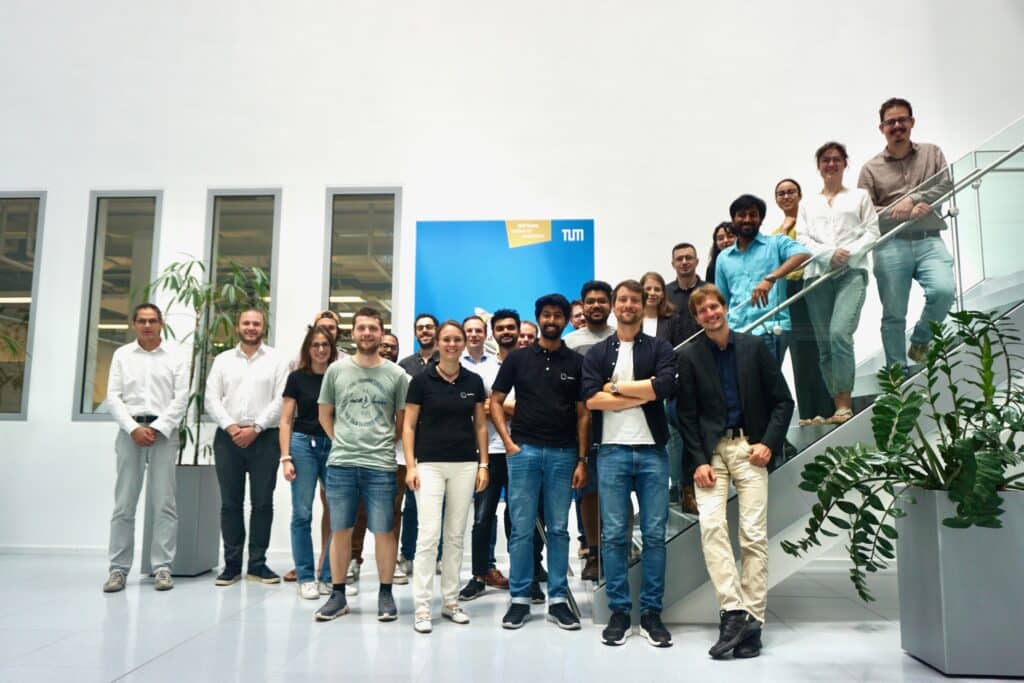
AI-based modular battery systems for industrial and grid applications
The companies STABL and FENECON are researching AI-based modular battery systems for commercial and grid applications together with the Technical University of Munich and Kempten University of Applied Sciences.
Battery storage systems are useful for industry
The KI-M-Bat research project focuses on the development of a modular and highly efficient hardware and controller concept for current and future relevant grid applications using new and used (‘second-life’) battery storage systems, as well as control via a suitable software interface, which is to be made freely available to users. The software tool chain includes a digital twin of the battery and a control strategy based on machine learning. This will be linked to existing open source developments by the project partners and will also be freely available to users – for customisation to individual requirements.
The concepts developed in the project on industrial storage systems are also transferable: From large-scale storage systems to the ‘grid booster’ concepts planned for grid support in the high-voltage grid in the future.






In the context of the energy transition on the way to a 100% renewable electricity supply, battery storage systems in particular will play a key role in the future alongside a massive expansion of photovoltaics, wind power and electricity grids.
While home storage systems and large storage systems are now sometimes economically viable, the number of medium-sized systems installed for commercial and industrial customers is lagging far behind. Despite great ambitions to reduce the CO2 footprint of numerous commercial enterprises, photovoltaic systems and CHP units are still primarily installed in Bavaria, but the potential of battery storage systems is rarely utilised in this user segment.
Why does battery storage make sense for industry and commerce?
Battery storage systems make sense for industry. The number of storage systems installed is still lagging, particularly for medium-sized commercial and industrial customers. In addition to grid stabilisation and the reduction of CO2, covering peak loads is also an argument for installing a battery storage system in the industrial sector. STABL Energy already has experience with the integration of used electric car batteries and has developed a technology that gives discarded electric car batteries a second life. As more and more electric vehicles roll onto Germany's roads, a large number of old batteries are expected in just a few years' time, which can be utilised as second-life storage units, particularly in the commercial sector.
Scientific and technical concept as a basis for practical application
The Chair of Electrical Energy Storage Technology (EES) at the Technical University of Munich has in-depth knowledge in the field of battery characterisation and modelling and deals with the design, operation and technical-economic application modelling of battery systems. Prof. Dr Holger Hesse headed the group on stationary battery storage systems there and has dealt with the operation of stationary battery storage systems in energy industry applications in numerous research projects and publications. Prof. Dr Hesse was appointed to Kempten University of Applied Sciences (HS-K) on 1 September 2022 to establish and head the ‘Smart Energy Systems’ research professorship. The aim of the new research group is to use stochastic optimisation and machine learning methods to optimise the control of energy systems with energy storage systems in terms of functionality, efficiency and flexibility.
involved Industry partners & research institutions

STABL Energy GmbH
STABL Energy develops energy storage systems from discarded vehicle batteries. The aim is to increase the use of renewable energies with the help of energy storage systems and at the same time extend the life cycle of car batteries. This reduces dependence on fossil fuels and enables batteries to be used for longer, thus contributing to the success of the energy transition. To this end, the company is setting a new standard in the design, safety, reliability, cost efficiency and handling of battery storage systems with its innovative, integrable technology.

FENECON GmbH
FENECON GmbH plans, develops, manufactures and maintains customised electricity storage solutions for home use, small and medium-sized businesses and industrial applications. FENECON GmbH has specialised in the field of storage media for electrical energy for over 10 years. Our specialists have many years of experience in development, production, realisation, planning and repair. Sustainable energy concepts are always the focus of all projects at FENECON GmbH. Our intelligent monitoring and control concept FEMS is established as a unique concept across all industries and has been used countless times. Environmental friendliness and energy efficiency define the company’s philosophy in every component.

Technical University of Munich
TUM-EES: The Chair of Electrical Energy Storage Technology (EES) at the Technical University of Munich (TUM) is a leading research institute for lithium-ion batteries. The main research areas are algorithms for battery management systems, battery modelling, battery systems and optimized operation and design of stationary storage systems. He is involved in a large number of research projects on Li-ion batteries with partners from industry and science and runs several laboratories to study the aging and behaviour of battery cells.



CoSES Research Center
At the heart of the Centre for Combined Smart Energy Systems (CoSES) at the Technical University of Munich (TUM) is a laboratory environment that simulates a small local energy system (microgrid). This consists of the heating, cooling, transport and electricity subsystems. In order to create a test environment with realistic conditions and reduce the use of simulation models, the laboratory is largely equipped with real hardware.
The CoSES laboratory consists of five building emulators, each of which includes the three levels of communication, heat and electricity. The building emulators, consisting of real generators and storage units, simulate four single-family homes and an apartment building. These are connected via an electricity and a heating/cooling network.


HS Kempten- Smart energy systems
The Chair of Smart Energy Systems at Kempten University of Applied Sciences, headed by Prof. Dr. Hesse, focuses its research activities on the in-depth investigation of stochastic optimisation techniques, algorithms for the effective management of power resources and reinforcement learning in the context of stationary battery systems. The group’s research projects are dedicated to the holistic analysis of the performance of these systems, taking economic aspects into account, with the aim of developing optimised control strategies for storage systems.
Funded by the Bavarian Research Foundation
The Bavarian Research Foundation was established in 1990. In addition to state research funding, it supports cooperation projects between research institutions (universities or non-university institutions) and companies that are important for the scientific and technological development of Bavaria or the Bavarian economy. Since its establishment, the Bavarian Research Foundation has approved around 627 million euros for 1030 projects. Together with the co-financing shares of the Bavarian economy, a total project volume of 1.379 billion euros has been initiated.


